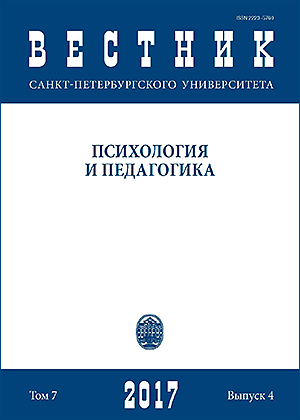Musical influence in the practice of correctional psychology: The emotional aspect.
DOI:
https://doi.org/10.21638/11701/spbu16.2017.407Abstract
The importance of musical influence upon correction of the emotional sphere of teenagers with a mild degree of mental retardation has been revealed. The emphasis is on providing the adequacy of the perception and graphic expression of the emotional content of different compositions by this group of teenagers. There were musical selections, offered for listening, which at the same time objectified emotions of joy, anger, sadness and tranquility. Teenagers with mild mental retardation are inferior to their unimpairedly intelligent coevals in emotion definition accuracy, especially anger and tranquility. The content analysis of free drawings made while listening to fragments of music demonstrated substantive and colour vicinity of graphic appearance of emotions, close hierarchy of the accuracy of emotion differentiation among teenagers with mild mental retardation and unimpaired intelligence. The coincidence of orientation of working capacity change was proved to be significant among teenagers with different level of mentality when listening to musical fragments of slow and fast tempo. The common characteristics as revealed enable us to assume the ability of teenagers with intellectual disturbances to adequately reflect the emotional content of the music that increases the objectivity of music therapy results in solving the problems of correctional psychology.
Keywords:
emotions, mental retardation, musical influence, perception of music, emotional content of music
Downloads
References
Downloads
Published
How to Cite
Issue
Section
License
Articles of "Vestnik of Saint Petersburg University. Psychology" are open access distributed under the terms of the License Agreement with Saint Petersburg State University, which permits to the authors unrestricted distribution and self-archiving free of charge.




